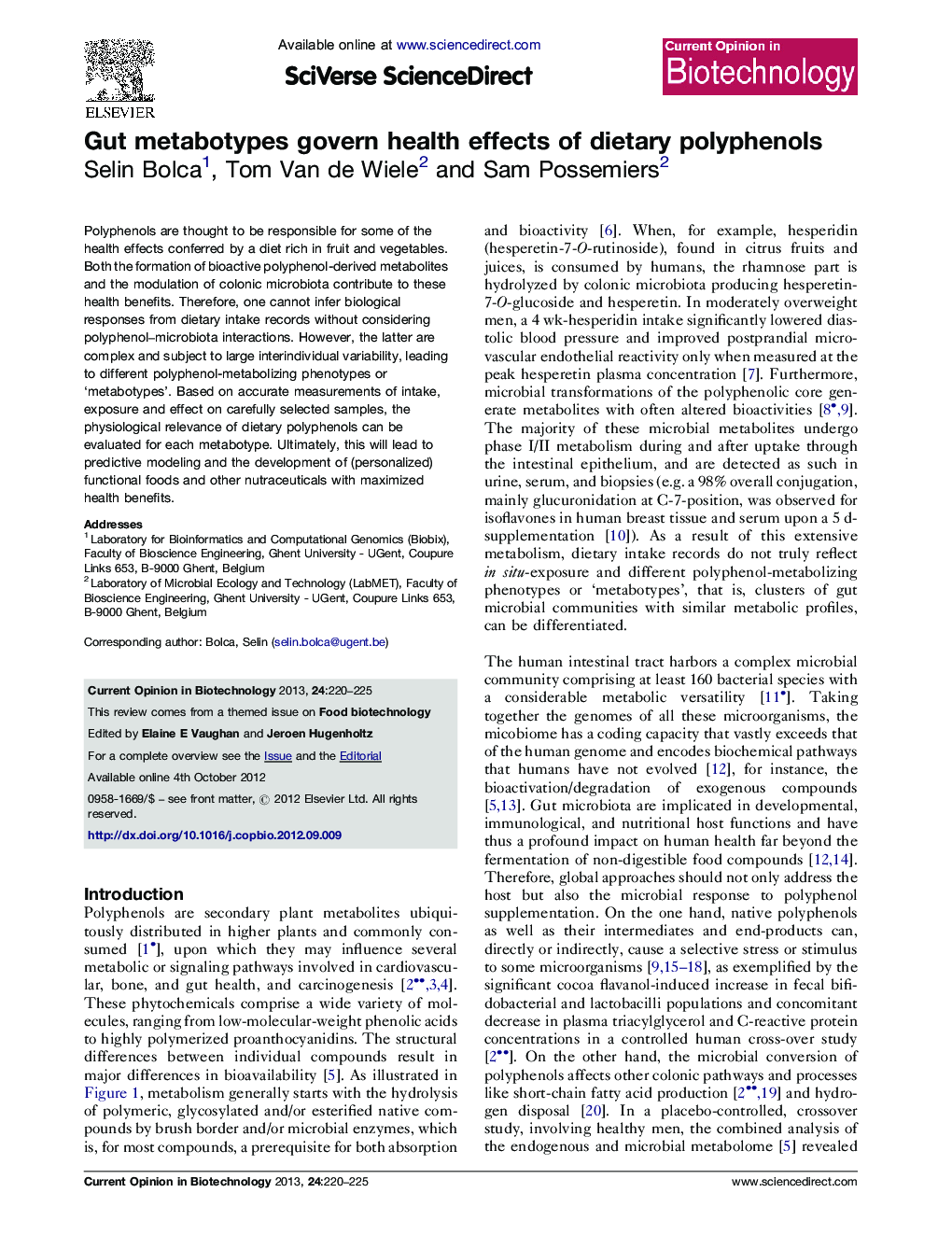| کد مقاله | کد نشریه | سال انتشار | مقاله انگلیسی | نسخه تمام متن |
|---|---|---|---|---|
| 15932 | 42478 | 2013 | 6 صفحه PDF | دانلود رایگان |

Polyphenols are thought to be responsible for some of the health effects conferred by a diet rich in fruit and vegetables. Both the formation of bioactive polyphenol-derived metabolites and the modulation of colonic microbiota contribute to these health benefits. Therefore, one cannot infer biological responses from dietary intake records without considering polyphenol–microbiota interactions. However, the latter are complex and subject to large interindividual variability, leading to different polyphenol-metabolizing phenotypes or ‘metabotypes’. Based on accurate measurements of intake, exposure and effect on carefully selected samples, the physiological relevance of dietary polyphenols can be evaluated for each metabotype. Ultimately, this will lead to predictive modeling and the development of (personalized) functional foods and other nutraceuticals with maximized health benefits.
Figure optionsDownload high-quality image (292 K)Download as PowerPoint slideHighlights
► Health effects of dietary polyphenols often depend on multiple metabolic processes.
► Gut metabotypes with specific polyphenol metabolism patterns can be differentiated.
► Physiologically achievable concentrations of relevant metabolites should be tested.
► Novel products and applications can exploit polyphenol–microbiota interactions.
Journal: Current Opinion in Biotechnology - Volume 24, Issue 2, April 2013, Pages 220–225